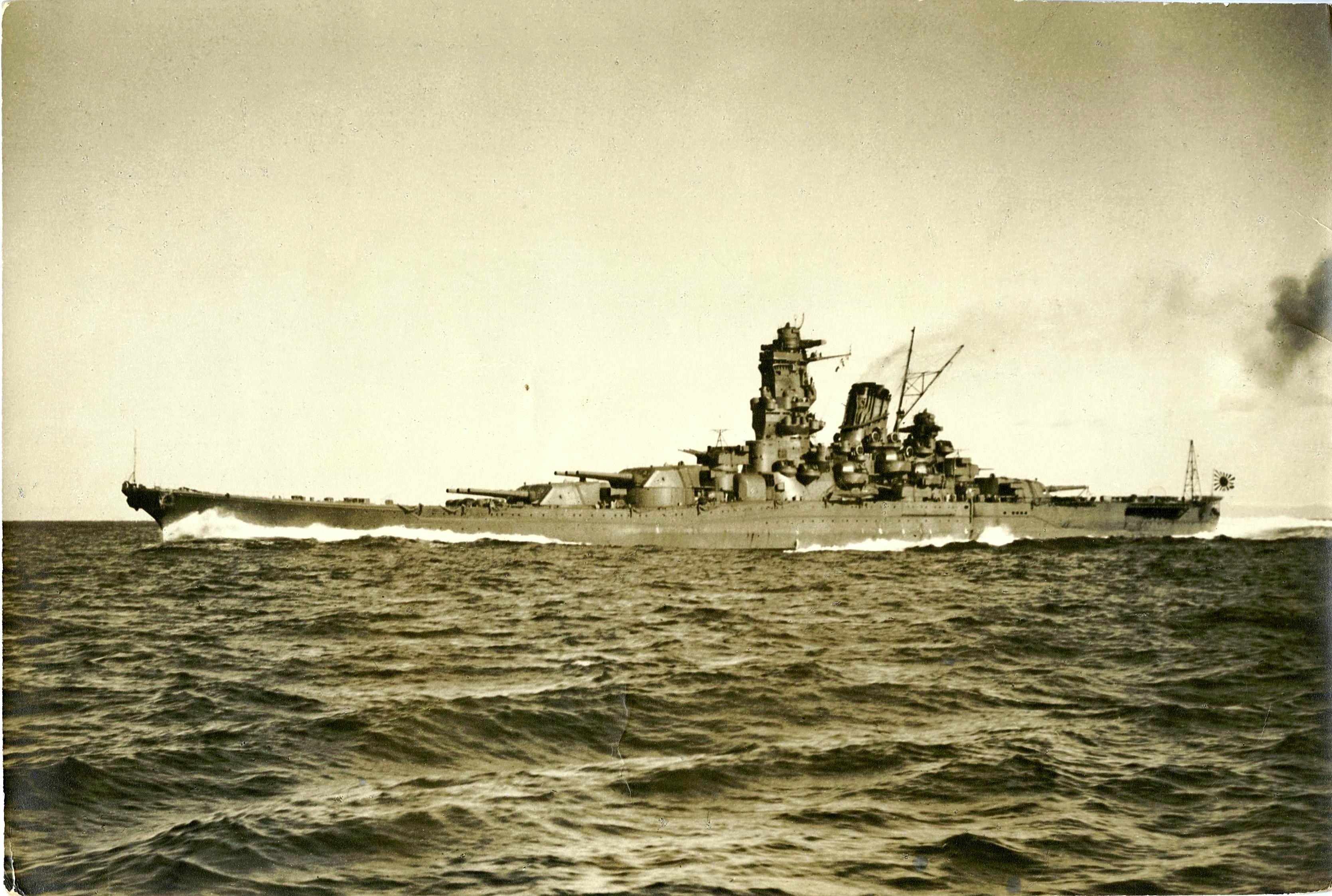Battleship Yamato Crewman’s Question Still Haunts Son; Father Spoke of Death Just before Fatal Okinawa Voyage in 1945
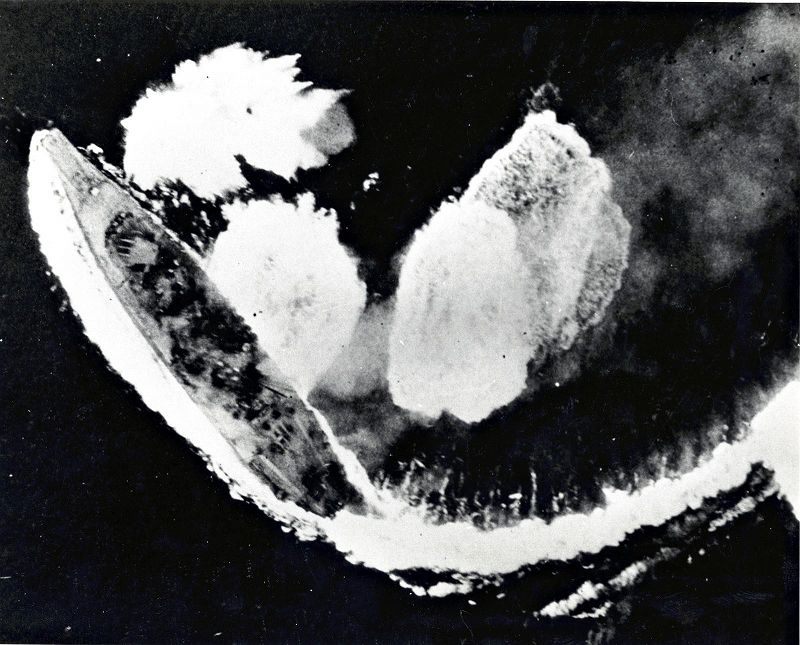
The battleship Yamato is seen under aerial attack off Hashirajima Island in Iwakuni, Yamaguchi Prefecture, in March 1945.
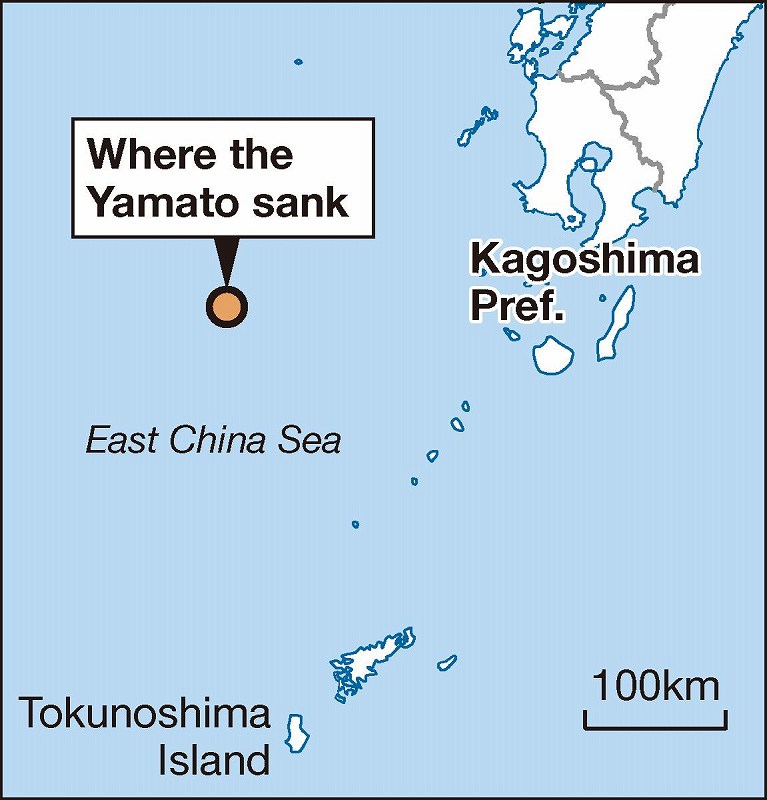
15:39 JST, April 9, 2025
“Don’t you want me to die in battle?”
Hiroshima City resident Reiji Fujimoto, 93, recalled the evening in 1945 when his father Yasaku, a crewman on the Battleship Yamato, asked him that question.
It was during the last dinner they had together. To this day, Fujimoto cannot forget those words. He has spent his life pondering what his father meant.
‘Japan cannot win’
Chunks of tofu were boiling in a pot on a hibachi brazier that night. Fujimoto, then 13, was having dinner with his family at their home in Kure, Hiroshima Prefecture. Gathered around the pot were Fujimoto’s father, mother, younger brother and younger sister, all smiling.
His father Yasaku, 44 at the time, was drinking sake in a relaxed mood. He murmured, “Japan cannot win.” And then he suddenly asked, “Reiji, don’t you also want me to die in battle?”
Fujimoto was stunned to hear it. No child should want his father to die. Silence fell over the table for several minutes.
That night, his father went back to his duty aboard the Yamato, which was anchored in the city. He never returned.
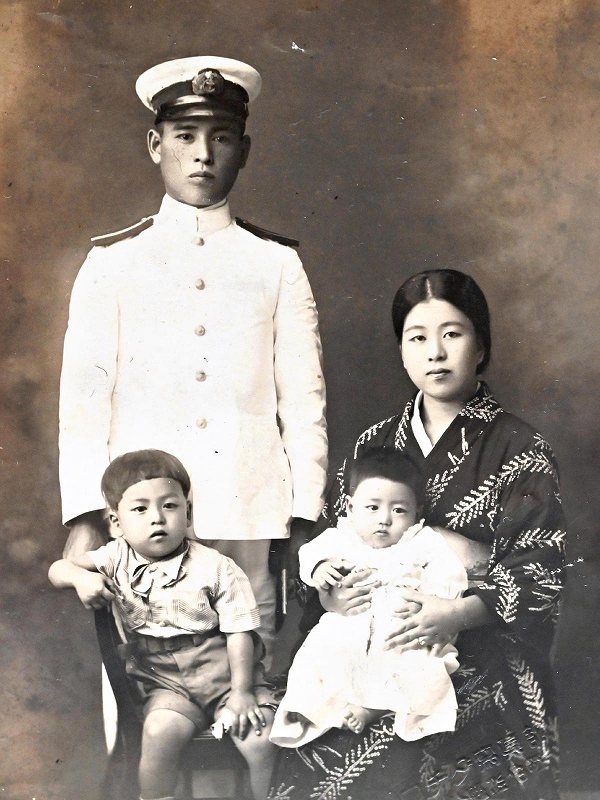
A photo of battleship Yamato crewman Yasaku Fujimoto and his family. Reiji Fujimoto is seen in front left.
Pioneer of suicidal attacks
On March 28 in that year, the Yamato departed Kure, and headed for Okinawa with nine warships, including the cruiser Yahagi and the destroyer Yukikaze.
Leaders of the Imperial Japanese Navy ordered the Yamato to be “the pioneer of suicidal attacks by all 100 million Japanese.” The battleship aimed to storm into U.S. fleets without sufficient protection from fighter planes.
U.S. forces quickly noticed the Yamato’s movements. On April 7, a swarm of U.S. warplanes attacked the Yamato just after the battleship entered the East China Sea.
Torpedoes and bombs hit the Yamato one after another. The largest battleship in the world sank in a sea area about 500 kilometers north of Okinawa Island.
Yasaku had taken part in the Yamato’s construction from its outfitting stage. He knew every detail of the structure of the ship. In times of combat he was assigned to fire-extinguishing duties or pumping water into or out of sections of the ship to maintain balance.
Of the about 3,300 members of the Yamato’s crew, records say that its escort of destroyers and other warships were able to rescue only about 280. Yasaku was not among them.
An official notice of Yasaku’s death in battle reached the Fujimoto family five months later. They placed his shirt and some of his fingernail clippings in an empty urn and conducted a funeral for him.
After the funeral ended, Fujimoto felt deeply sad thinking, “I can never meet my father again,” and wept when he was alone.
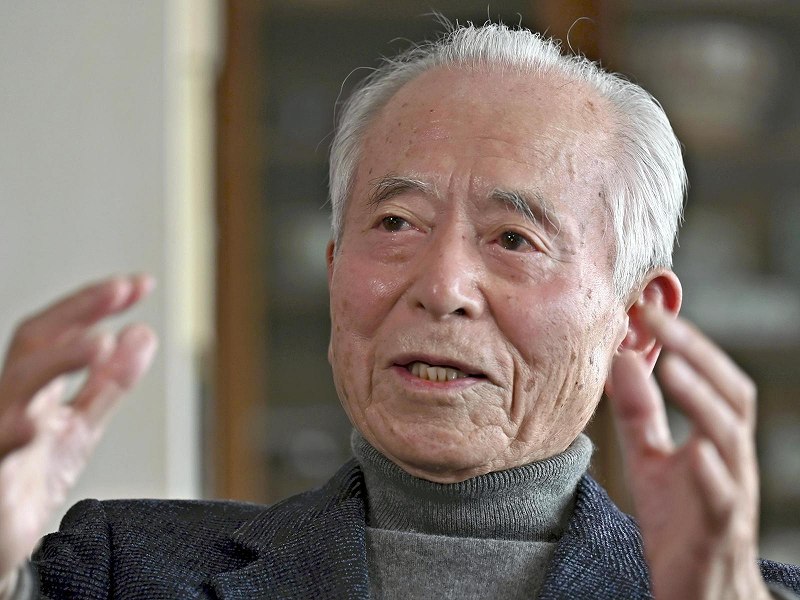
Reiji Fujimoto talks about his memories of his father.
Hope for peace
After the end of the war, Fujimoto became a researcher of Irish literature and worked as a professor at Hiroshima University. After retiring from that job, he became the president of Hiroshima City University.
Fujimoto inaugurated a course to study the damage from the atomic bombings of Hiroshima and Nagasaki and has called for the importance of peace.
When recalling memories of his father over the past 80 years, that question — “Don’t you also want me to die in battle?” — always echoes in his mind.
In wartime, Kure was home to many military personnel. And many families’ breadwinners died one after another.
One day, when Fujimoto and a friend were coming home from kendo practice, the friend’s mother ran out and said: “Father died. A telegram came.” Fujimoto said it tore his heart.
In those days, Fujimoto worked in a factory as a requisitioned laborer. Manned torpedoes for suicide attacks against enemy ships, the Kaiten, were placed in one corner of the factory.
When he talked about the weapon to his father, Yasaku said, “I asked my superior to let me go on one.”
Yasaku always returned home after dark so that other people would not spot him. Fujimoto assumed the reason was that “many people from our neighborhood had died in battle. My father’s words may have come from his feeling sorry to have remained alive.”
Fujimoto now regrets that his father could not live out his life in the years of peace after the war.
Looking at the world situation, in which invasions and armed conflicts continue, Fujimoto feels a sense of crisis that peace may collapse anytime.
“I shall continue to convey my experience that I lost my father in an outrageous suicidal attack,” Fujimoto said.
Top Articles in Society
-

Producer Behind Pop Group XG Arrested for Cocaine Possession
-

Man Infected with Measles Reportedly Dined at Restaurant in Tokyo Station
-

Man Infected with Measles May Have Come in Contact with Many People in Tokyo, Went to Store, Restaurant Around When Symptoms Emerged
-

Woman with Measles Visited Hospital in Tokyo Multiple Times Before Being Diagnosed with Disease
-

Australian Woman Dies After Mishap on Ski Lift in Nagano Prefecture
JN ACCESS RANKING
-

Producer Behind Pop Group XG Arrested for Cocaine Possession
-

Japan PM Takaichi’s Cabinet Resigns en Masse
-

Man Infected with Measles Reportedly Dined at Restaurant in Tokyo Station
-

Israeli Ambassador to Japan Speaks about Japan’s Role in the Reconstruction of Gaza
-

Videos Plagiarized, Reposted with False Subtitles Claiming ‘Ryukyu Belongs to China’; Anti-China False Information Also Posted in Japan
